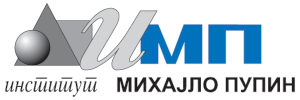Munich – On May 14, 2019, the EU-funded project MOVECO held its closing conference at the Ars Electronica Center in Linz under the motto “The Danube goes circular”. About 70 participants from ten countries in the Danube region took the opportunity to exchange views on the circular economy. Project results from MOVECO were presented, including a transnational strategy for the circular economy in the Danube region as well as a travelling mobile exhibition on this topic. The conference culminated in an awards ceremony in which the project partners announced the winners of MOVECO’s Innovation Award.
With the Innovation Award, the MOVECO project commended the achievements of innovative and circular products and services for the first time. The 65 businesses that applied for the award were all creative, future-oriented companies from the partner countries Austria, Germany, Slovenia, Slovakia, Hungary, Croatia, Bulgaria, Serbia and Romania. An international jury of circular economy experts from these countries selected the 15 finalists who were presented at the conference.
The furniture manufacturer DONAR d.o.o. (Slovenia) won in the category “Circular design of the year”, and the online platform Refurbed (Austria), which repairs and resells used electronic appliances, received the prize for “Circular innovation of the year”. In the “Product of the year 2019” category, three companies impressed the international jury: Ponio (Slovakia), with its compostable cosmetics containers; Cupffee (Bulgaria), with its edible coffee cup; and Lorenz GmbH & Co.KG (Germany), with its recyclable and smart water meters.
Transnational Strategy and Roadmaps for a Circular Economy in the Danube Region
Under the guidance of the Slovenian Ministry of the Environment and Spatial Planning, the MOVECO partners developed a transnational strategy targeting political decision-makers to accelerate the transition towards a circular economy in the Danube region. Through new circular business models, the approach contributes to intelligent and sustainable growth in the region, creating jobs and helping to reduce social and economic disparities between the countries.
The strategy focuses on three streams of waste: from electrical and electronic equipment, from batteries and accumulators, and from packaging. At the same time, it proposes measures and actions for product manufacturers and waste operators, as well as for households and consumers. Based on this strategy, roadmaps have been drawn up with concrete recommendations for action.
Antonija Božič Cerar, expert in environmental affairs at the MOVECO headquarters in the Chamber of Commerce and Industry of Slovenia, is satisfied with the outcome of the project: “It was a pleasure to observe the imaginative and creative business ideas and projects linked to a more efficient, circular use of resources. We hope they will inspire other companies contemplating how to approach the transition from linear to circular modes of production and also help raise awareness that this transition is achievable within the wider community.”
Conference attendees could also visit a mobile exhibition that displayed products and solutions from companies in the Danube region that are closing loops in their resource management and thus successfully implementing the vision of a resource-conserving circular economy.
About MOVECO
Funded with the European Union’s Interreg Danube Transnational Programme, MOVECO (www.interreg-danube.eu/moveco) raises awareness of the circular economy among companies, universities and research institutions, public authorities, economic development institutions and citizens. From December 2016 to August 2019, 16 partners from ten countries in the Danube region[1] have been working together to promote knowledge about the circular economy and to improve the framework conditions for circular products and business models in the region.
The project consortium developed an online platform (www.danube-goes-circular.eu) with a virtual marketplace to support cooperation between companies and research institutions, to promote the reuse of products and raw materials and to stimulate industrial symbioses. The project is coordinated by the Chamber of Commerce and Industry of Slovenia. Two German partners are also involved in the consortium: the Bavarian Research Alliance (BayFOR) GmbH from Munich and the Cluster of Environmental Technology Bavaria from Augsburg.[MS1]
About the Bavarian Research Alliance (BayFOR)
The Bavarian Research Alliance (www.bayfor.org/english) – funded by the Bavarian Ministry of Science and the Arts – supported the MOVECO consortium in the application process. In the ongoing project, BayFOR is involved as a scientific project partner and is responsible for the project’s external communication.
BayFOR’s purpose is to promote Bavaria as a centre for science and innovation within the European Research Area. It supports and advises Bavarian scientists and stakeholders from the private sector in securing European funding for research, development and innovation. The focus is on the Framework Programme for Research and Innovation Horizon 2020 and the future Horizon Europe Framework Programme. As a partner in the Enterprise Europe Network, BayFOR provides targeted advice for SMEs interested in EU research and innovation projects. BayFOR is a partner institution in the Bavarian Research and Innovation Agency (www.research-innovation-bavaria.de).[MS2]
More information
www.danube-goes-circular.eu
www.interreg-danube.eu/moveco
Press contacts
Grit Ackermann
Tel.: +386 1 5898 418
Email: grit.ackermann@gzs.si
Chamber of Commerce and Industry of Slovenia
Dimičeva 13
SI-1504 Ljubljana, Slovenia
Emmanuelle Rouard
Tel.: +49 (0)89 9901 888 111
Email: rouard@bayfor.org
Bavarian Research Alliance (BayFOR) GmbH
Prinzregentenstraße 52
DE-80538 Munich, Germany

